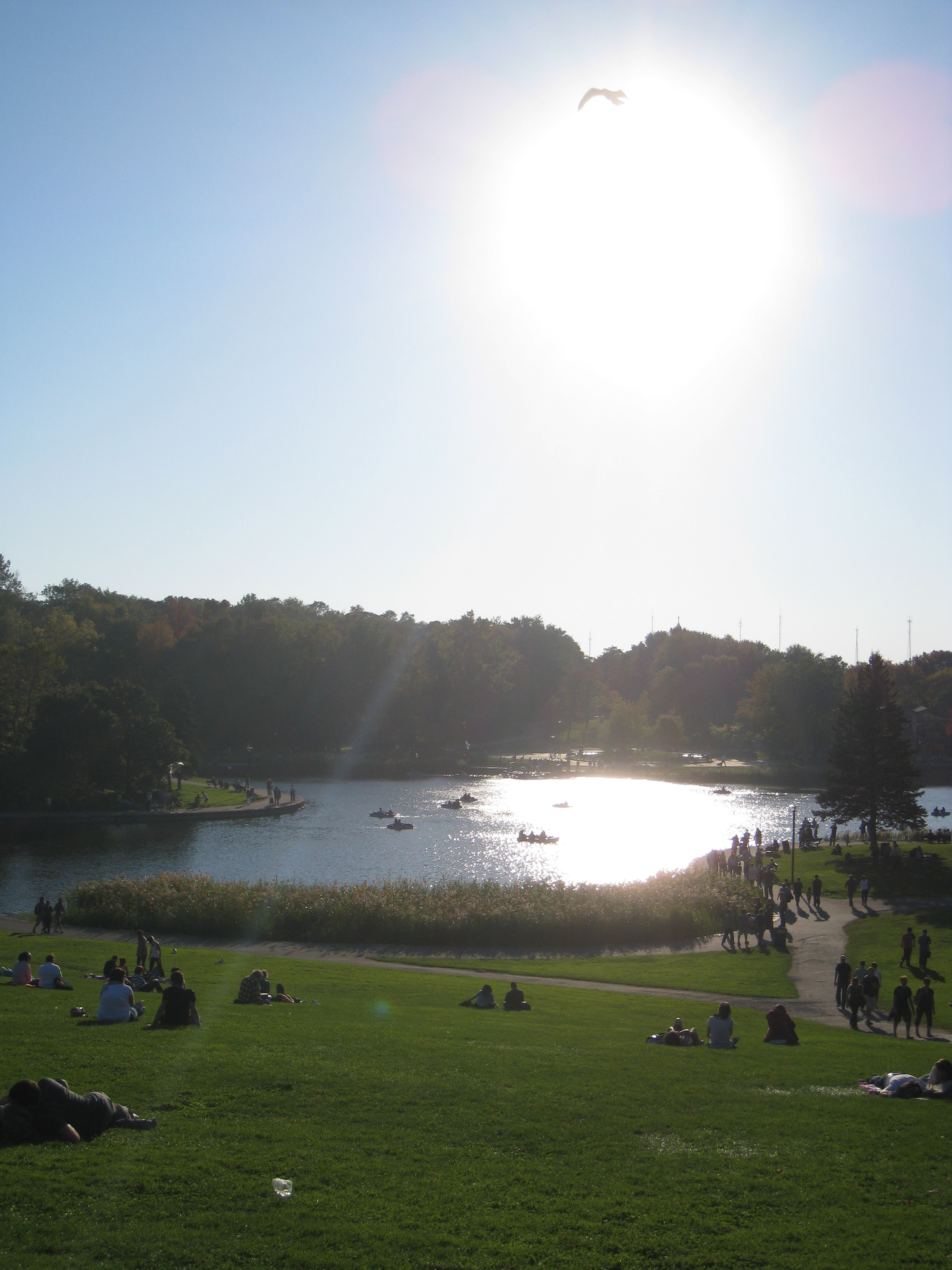This page represents only my own views, and not those of any university or other body.
Posted Thursday 20th October 2011 at 7.12pm
What is pi?
The phrase "What is pi?" is trending on twitter. This seems to be because a girl on a TV programme called Educating Essex asked "What is pi? Where does it come from?" Most people on twitter are saying things like "That girl must be so proud... if she knows how to turn her computer on" or making jokes about pie.
I think it's a very good question for a secondary school pupil to ask. To answer, you could try to explain about real numbers as an abstract concept, and say that pi is just a particular real number; perhaps you could give the nice continued fraction expansion of pi/2 to demonstrate how you might approximate pi. Or you can go into a history lesson about Greeks and regular polygons approximating circles, and say, well, it looks like the ratio of the circumference to the diameter is getting closer and closer to some number, and that number isn't anything simple like 3, but it turns out to be important, so we should give it a name; and the name we give it is pi.
Either way it's not really a simple concept, certainly not simple enough that it doesn't need explaining.
I got caught in an incredible storm today on my way to Université de Montréal for a seminar. I had to stop cycling because I couldn't see; hailstones were pinging off my head and hands. Luckily there was a bus stop nearby that I got under, soon to be joined by three other adventurers. We stood and laughed at the ferocity of it for a while, before the hail became rain, and I had to head off again to get to the seminar in time. Sitting through the seminar in soaked jeans was unpleasant, but I did emerge just in time to see a fantastic sunset through the mist.
0 comments
Posted Wednesday 19th October 2011 at 10.38pm
OK Pal
The new M83 album is good. (On the other hand, another Pitchfork best new album, Real Estate's "Days", is what Henry Owings would call "music for boys that pee sitting down". Like Band of Horses but less exciting. And Band of Horses weren't hugely exciting.)
Turns out I'm lecturing "ODEs for engineers" next term. Woo. At least I get to dust off the old Boyce - Di Prima.
0 comments
Posted Tuesday 18th October 2011 at 8.08pm
The green deal
I try to stay positive most of the time, but I've just read a truly awful article on the Guardian website: Sam Arie on "Five reasons the 'green deal' policy on energy saving won't work". To quote his explanation, there's "a new policy called the green deal, under which households will be able to borrow funds for energy-saving home improvements. Repayments will be collected through gas and electric bills, and if you move house, the new occupier takes over the debt."
Now here are his five reasons why the policy won't work, with my commentary in italics after each one. Pffft.
1. It does not address the problem of waste
In general, a culture of waste is encouraged both by energy prices that get cheaper the more you consume, and by a massive tax break for households Ė VAT for domestic energy is charged at the 5% rate, no matter how much you use. We should address these simple issues and get a grip on waste before we introduce more complex schemes.
Fair enough, but that's not a reason not to introduce the green deal, just a call to go further.
2. It targets the wrong households
Because the central idea is that you don't have to keep up repayments after you move house, the scheme will be most attractive for people in properties that change hands frequently, including for example rental properties. Yet it is the largest properties that have the largest carbon footprints, and 90% of larger properties are owner-occupied. Owner occupiers move house on average every 12 years, so there is that much less incentive for them to take part.
Er... no. The idea is that in the long term you save money by having these changes made to your house, but people aren't looking at the long term; so the government is encouraging them to look at the long term by taking away the short-term cost. If you're staying put long term then you get the long term benefit at no cost. If you're moving soon, then you don't get the long term benefit. Possibly it increases your house price so you get a short term benefit. OK, so both long-term and short-term occupiers get something good out of this. That's good.
3. It does nothing to improve the underlying economics of saving energy
If double glazing takes 50 years to pay back, it still takes 50 years under the green deal. All the deal does is reorganise the cashflows, and whether that leaves you better off in the end depends on how much you pay for the loan.
Since households with a mortgage can currently borrow at rates of between 2% and 5%, the green deal would have to be as good as interest free to offer a significant improvement. And if the loans come in at 6% to 9%, as the Green Deal Finance Company anticipates, the effect will be to make energy-saving investments even less attractive than they already are for most people.
In this scenario, Green Deal finance will only be attractive to households that cannot borrow at normal mortgage rates, for example because they have bad credit or no collateral. While it may be socially desirable to introduce green schemes for these households, it is not a good strategy for carbon reduction Ė quite simply because it is the richest households, not the poorest, which have the highest carbon emissions.
It may well be true that the green deal just reorganises the cashflows. That's the point: the short-term cost disappears, giving you no reason not to get the work done. If you think you can get a better deal by remortgaging your house then bully for you, do it! Again, good either way.
4. Many green deal plans will never be paid back
Payments will be collected via energy bills, but many energy bills go mysteriously unpaid, especially when people move house or change supplier. As of today, 3.2% of energy bills are in arrears, compared with 2.2% of mortgages. In the Commons debate, the minister for energy and climate change, Greg Barker, said the default rate for Green Deal loans "will be the same as the standard default rate for electricity bills generally", which he explained, "is a very low percentage".
But this is a catastrophic error of calculation: what he is overlooking is that everybody has an electricity bill, so the "very low" default rate he is talking about is an average including millions of households with excellent credit. But not everybody will take out a Green Deal loan. What the default rate turns out to be for the loans depends entirely on who signs up for them, and that in turn will depend on how much they cost.
Do we really think the government just said "ah, the default rate for this thing will probably be the same as the default rate for leccy bills generally, pull up the gangplank, let's set sail!"? Well perhaps they did, but we probably shouldn't criticize them for not thinking it through without asking whether they've thought it through. Assuming they're being stupid is tempting based on previous form, but let's give them the benefit of the doubt on this one for now.
5. Green deal loans may be expensive in their own right
According to the Bank of England, a conventional, unsecured personal loan currently costs between 11% and 16%. It is hard to see how a Green Deal loan, which is neither secured against collateral (like a mortgage) or credit checked against the individual (like a personal loan) could possibly be cheaper. The Green Deal will also have to cover the cost of a certified home survey and of administrating payments through the energy company. So the effective cost at market rates could easily reach 19% or 20% Ė in other words, about the same as a credit card or personal overdraft.
Taken together, the implication of these points is that the Green Deal will fail if it is offered at commercial lending rates. Take up will be limited to a segment of households that are less affluent, already economical in their energy usage, and which may well have difficulty repaying the loans in full. Meanwhile, the larger, more affluent households Ė which have the greatest potential to make carbon savings Ė will not participate, because they can already borrow the money elsewhere and at a cheaper rate.
On the other hand, if the green deal is subsidised by the government and offered at 0%, affluent households will be much more likely to take part. "Free" money would certainly boost the marketing of the green deal. But the cost to the taxpayer will be counted in the billions, while the beneficiaries, by definition, will be households who already have money.
This may make sense to politicians, offering as it does the prospect of a large handout to the middle classes just before the next election. But for the taxpayers who will foot the bill, it is a much less appealing prospect. Far better to forget about the green deal and focus instead on a simple rethink of energy pricing for high and wasteful users Ė which is, after all, what the Liberal Democrats promised us before the last election.
Like the first point, this is not a reason not to bring in the green deal, but an argument to possibly go further. If it only benefits the people who can't get cheap credit otherwise - well at least it's helped them, that's better than nothing, now let's go further. And if it's like free money for the middle classes - well then it's like free money for the lower classes and the upper classes too. So everyone benefits. Poor tax payer... looks like the people who pay most tax will be paying proportionally more so that everyone can stay warm more efficiently. Oh no! Redistribution of wealth from the top to the bottom! Oh hang on, that's kind of the point of taxes, isn't it?!
0 comments
Posted Sunday 16th October 2011 at 10.01pm
The exhale from your first breath
More simulations. Here's a fun branching random walk... click the picture for the simulation in action.

0 comments
Posted Sunday 16th October 2011 at 0.10am
Close-up of the binary search tree
For some reason today I decided to install Processing on Ubuntu (my laptop is dual boot Windows/Ubuntu, but I'd only had Processing on Windows) and to test whether it was working I ran my binary search tree drawing program. But I upped the size of the picture... and what I got is kind of cool. You can zoom right and see the detail on the tiniest branches right at the bottom. Click on the image below for the full thing, but beware, it's about 2.5mb.

2 comments
Posted Thursday 13th October 2011 at 9.14pm
Aniya Sophia Akhund
Warning: possibly the cutest photo ever follows. My friend Immad (who runs heyzap.com) is now a dad. Congratulations to him and Fatema. And good luck to Fatema coping with the two of them...! Only joking Imms ;)

0 comments
Posted Tuesday 11th October 2011 at 1.41 pm
Message in a bottle
"British and US naval forces freed an Italian ship from Somali pirates after hostages threw an SOS message in a bottle from a porthole, Italy's defence minister has said." Great story, pity about the lack of Sting/Police jokes in the write-up.
0 comments
Posted Monday 10th October 2011 at 7.47pm
The ePetri dish
Nice work. It's always cool when people come up with ways of using technology that has been mass-produced for one purpose to cheaply create something that's useful for an entirely different purpose.
0 comments
Posted Sunday 9th October 2011 at 11.50pm
Percentages
Louigi just shared this link to a very nice autobiographical essay by Sady Doyle from the USA. It's called "The Percentages: A Biography of Class".
It's odd hearing about people being fiercely protective of their middle class status, because my mum was fiercely protective of our working class status when I was young. "We're working class, Matthew." And that was that.
"And that was entirely my motherís doing. Her fight ó to get into college, to be the best at her college, to do all her homework on the back of the washing machine when it was her turn to do laundry, and she only ever wore hand-sewn jumpers, young lady, and she cried when she didnít get straight As ó was the subtext underneath everything I believed, about my family, and intelligence, and education. We didnít cry when our clothes werenít new or cool, we didnít want more toys; our family bought books, because we cared about learning. We didnít hate school, we didnít slack off, we didnít resent homework; we were there to actually learn things, not fool around or worry about prom."
That's my favourite bit, because it reminds me of my mum, and how she was bullied in school because she had holes in her shoes, and of how my grandad refused free school meals for his children because he didn't need government handouts thank you very much. I'm glad that I never faced the same difficulties. That's part of what Doyle is talking about - that you can count yourself as the same class as someone else ("the 99%", or "working class" or "middle class") without living with anything like the same circumstances.
0 comments
Posted Sunday 9th October 2011 at 6.58pm
Sometime
When the sun's out, is there any music in the world better than the Cosmic Rough Riders' Enjoy the Melodic Sunshine?

0 comments
| Older posts | Newer posts |